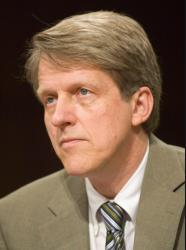

Research
BPEA | 2003 No. 2
2003, No. 2
The popular press is full of speculation that the United States, as well as
other countries, is in a “housing bubble” that is about to burst. Barrons,
Money magazine, and The Economist have all run recent feature stories
about the irrational run-up in home prices and the potential for a crash.
The Economist has published a series of articles with titles like “Castles in
Hot Air,” “House of Cards,” “Bubble Trouble,” and “Betting the House.”
These accounts have necessarily raised concerns among the general public.
But how do we know if the housing market is in a bubble?
The term “bubble” is widely used but rarely clearly defined. We
believe that in its widespread use the term refers to a situation in which
excessive public expectations of future price increases cause prices to be
temporarily elevated. During a housing price bubble, homebuyers think
that a home that they would normally consider too expensive for them is
now an acceptable purchase because they will be compensated by significant
further price increases. They will not need to save as much as they
otherwise might, because they expect the increased value of their home to
do the saving for them. First-time homebuyers may also worry during a
housing bubble that if they do not buy now, they will not be able to afford
a home later. Furthermore, the expectation of large price increases may
have a strong impact on demand if people think that home prices are very
unlikely to fall, and certainly not likely to fall for long, so that there is little
perceived risk associated with an investment in a home.